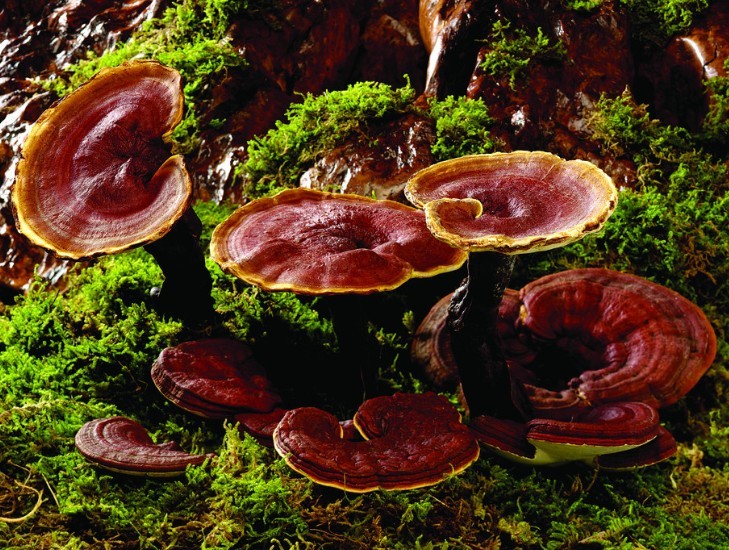Products
Contact us
- Changsha Herbal Ingredient Co.,Ltd
- Tel: 0086-731-88250818
- Add:No.56,Zhanxing Rd,Changsha,China,410205.
 sales@herbal-ingredient.com
sales@herbal-ingredient.com CHI-extracts
CHI-extracts

Reishi Mushroom Extract
Latin Name:Ganoderma lacidum
Active Ingredient:Polysaccharides/Ergosterol Triterpenoids
CAS No:/
Specification:10%-45%Polysaccharides
MOQ:1kg
Lead Time:Within 7days after confirming order
Reishi Mushroom Information:
Língzhī (traditional Chinese: 靈芝; simplified Chinese: 灵芝; Japanese: reishi; Korean: yeongji, hangul: 영지) is the name for one form of the mushroom Ganoderma lucidum, and its close relative Ganoderma tsugae, which grows in the northern Eastern Hemlock forests. These two species of bracket fungus have a worldwide distribution in both tropical and temperate geographical regions, including North and South America, Africa, Europe, and Asia, growing as a parasite or saprotroph on a wide variety of trees. Ganoderma lucidum enjoys special veneration in Asia, where it has been used as a medicinal mushroom in traditional Chinese medicine as a herbal medicine for more than 4,000 years, making it one of the oldest mushrooms known to have been used in medicine.
Active Ingredient: Polysaccharides Ergosterol Triterpenoids sterols, coumarin, mannitol
Specifications:
10%, 20% Polysaccharides Test by UV-VIS
Molecular Formula: C6H12O6·[C6H10O5]n-1
Molecular Mass: 300+(300-18)*(n-1)/2
Indications and Uses:
Reishi may possess some anti-tumor, immunomodulatory and immunotherapeutic activities, supported by some studies on polysaccharides, terpenes, and other bioactive compounds isolated from fruiting bodies and mycelia of this fungus.
A number of laboratory studies have shown anti-neoplastic effect of fungal extracts or isolated compounds against some types of cancer.
The mechanisms by which G. lucidum may affect cancer are unknown and may target different areas of cancer development: inhibition of angiogenesis (formation of arterial vessels within the tumour) mediated by cytokines, cytoxicity, inhibiting migration of the cancer cells and metastasis, and inducing and enhancing apoptosis of tumor cells.
Variation between preparations and potential negative side effects cannot be ruled out. G. lucidum extracts may be adaptogenic, anti-allergenic and anti-hypertensive due to the presence of triterpenes. Apart from these properties, Reishi has been found to be anti-inflammatory, antiviral, anti-parasitic, anti-fungal, antidiabetic, anti-hypotensive, and protective of the liver. It has also been found to inhibit platelet aggregation, and to lower blood pressure, cholesterol and blood sugar.
Reishi may act as a blood pressure stabilizer, antioxidant, analgesic, a kidney and nerve tonic. It has been used in bronchitis prevention and in cardiovascular treatment, and in the treatment of high triglycerides, high blood pressure, hepatitis, allergies, chemotherapy support, HIV support, and fatigue and altitude sickness.
Some peer-reviewed studies indicate that ganoderic acid has some protective effects against liver injury by viruses and other toxic agents in mice, suggesting a potential benefit of this compound in the treatment of liver diseases in humans.
Several species of Ganoderma have been used in traditional Asian medicines for thousands of years. Collectively, the Ganoderma are being investigated for a variety of potential therapeutic benefits.




